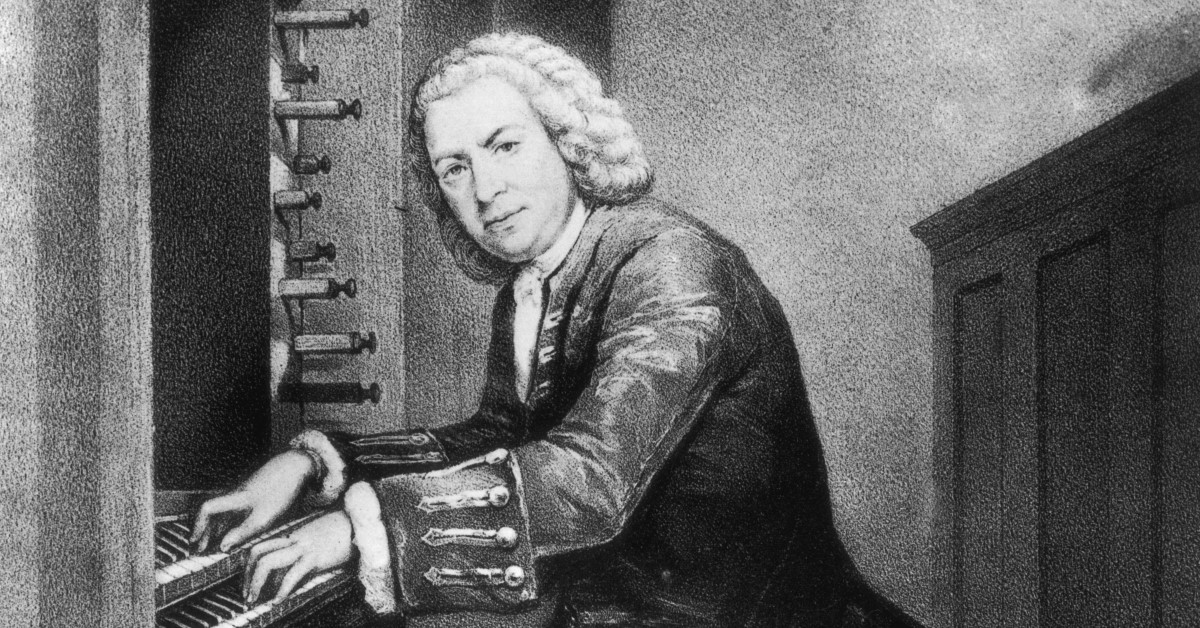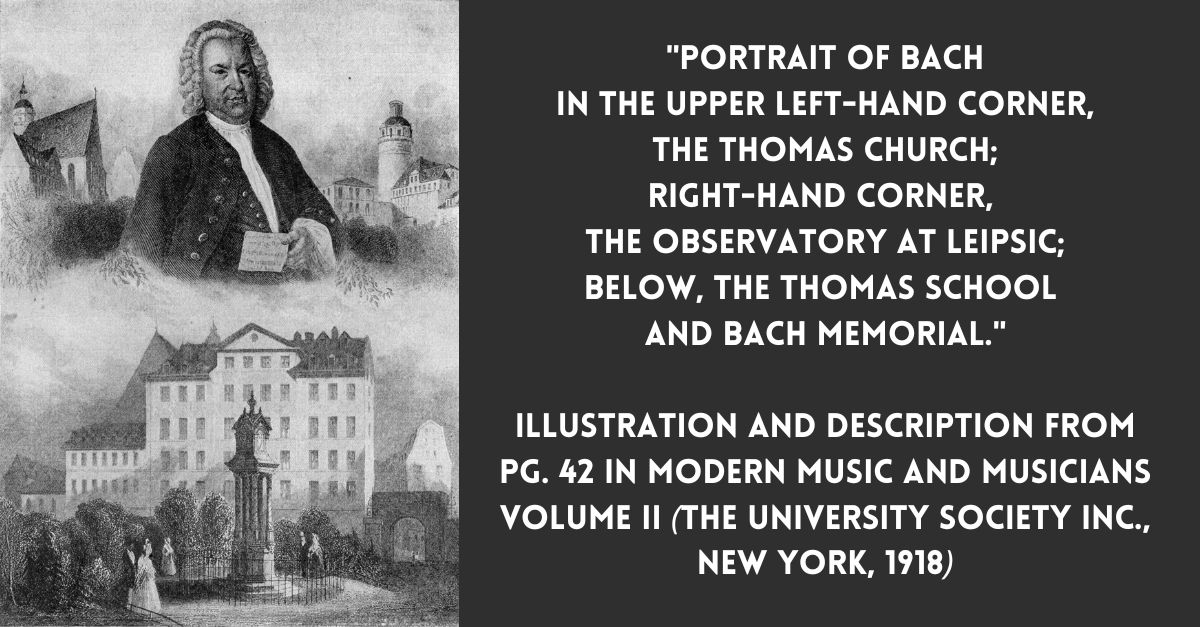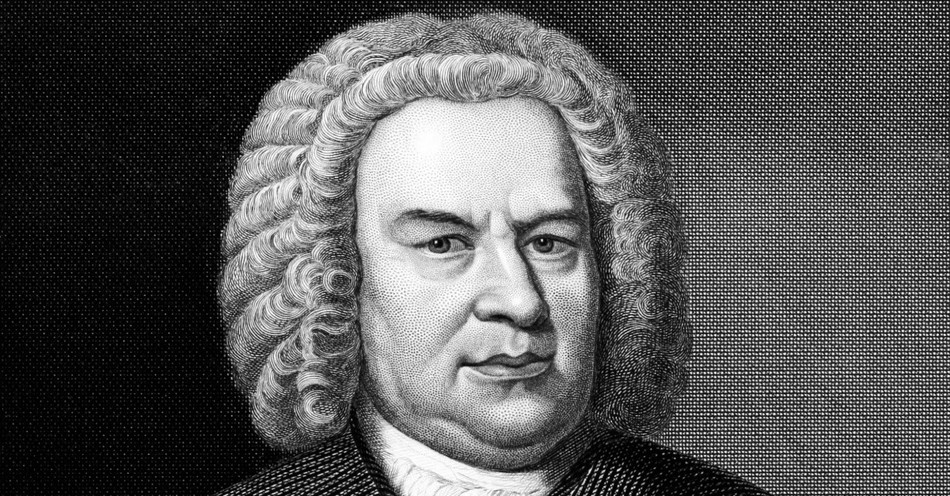Johann Sebastian Bach was one of history's greatest musicians, but his work was fueled by faith as much as by talent. Here is what you should know about this surprising man and his spiritual journey.
Table of Contents
- A Historical Overview: Bach Created Music to God's Glory
- Bach for Kids: Johann Bach's Midnight Adventure
- If You Enjoyed This Article...
A Historical Overview: Bach Created Music to God's Glory
One of the greatest gifts we can give, or receive, is the gift of joy. You will have to look hard to find any who have ever given more joy to the world than German composer Johann Sebastian Bach. Even now almost 250 years after he died, Bach's music still lifts the heart and energizes the soul.
Bach wrote his music for God. Most of his works are explicitly biblical. The famous missionary doctor Albert Schweitzer, who was also an expert on Bach, called him "the Fifth Evangelist." Bach's music is indisputably in a league by itself.
Fine Tuning the Soul
Bach's heavenly sounds were conceived in a life beset by earthly struggles and trials. Born into a family of musicians, Johann learned to sing and play several instruments at an early age. But both parents died before he was ten. Johann got his first organist job at age 17, but even then there were conflicts with the church leaders. They insisted that he direct the choir—which was notably lacking in musical ability.
Already, Bach was writing innovative choral pieces, but his singers couldn't handle them. And he lacked the patience to put up with them. One night, Johann even got into a street fight with one choir member, whom he had called a "nanny-goat bassoonist."
He moved to another church, and a new conflict. Well-meaning Pietists were demanding simple music. Couldn't Bach write something less ornate—something that would draw attention to God and not to the music itself? Bach strongly protested that his aim was to create "well-regulated church music to the glory of God." He took a new job with the Duke of Weimar, a respected, religious man who appreciated good music. This was a fertile period in Bach's life. He fathered seven children and gave birth to a new cantata each month.
Severance Pay?
But the relationship with the duke deteriorated. When Bach decided to take another job, the duke had him arrested and jailed for a month.
The struggles continued. Shortly after taking the new job, his wife died, leaving him with a house full of children. A second marriage was a happy one, however. Anna Magdalena supported his musical work, sang his compositions in a bold soprano, and bore him many more children.
Bach lived until age 65, always the feisty musician, fiercely dedicated to quality, passionately creating music for the glory of God.
A Cantata a Week?!!
Bach set before himself and accomplished the seemingly impossible task of preparing a different cantata for every Sunday for a three-year period. And remember that he not only had to create the music, but also get it copied for the performers, and rehearse with them.
Brahms on Bach
The great composer Johannes Brahms wrote to a friend about a composition by Bach (the Chaconne): " . . . the man writes a whole world of the deepest thoughts and most powerful feelings. If I could picture myself writing, or even conceiving, such a piece I am sure that the extreme excitement and emotional tension would have driven me mad.'
Pablo Casals on Bach
The noted cellist and composer Pablo Casals commented in his early 90's: "For the past eighty years I have started each day in the same manner. It is not a mechanical routine but something essential to my daily life. I go to the piano, and I play two preludes and fugues of Bach. I cannot think of doing otherwise. It is a sort of benediction on the house. But that is not its only meaning for me. It is a rediscovery of the world of which I have the joy of being a part. It fills me with awareness of the wonder of life, with the feeling of the incredible marvel of being a human being. The music is never the same for me, never. Each day it is something new, fantastic and unbelievable. That is Bach, like nature, a miracle!"
The winner is . . .
There are more recordings of Bach's music than that of any other composer. One count found over 1000 different albums.
J.J . . . . . . . . . . . . S.D.G.
Neither Bach nor his contemporaries had any idea that his music would grace the ages. He wrote for his time. Indeed he was obscure for a century after his death until he was rediscovered by Felix Mendelssohn. Thus many of his compositions were lost - no one knows how many. But on those that do survive there is the interesting insertion in Bach's own hand of the letters J.J. at the beginning of each and S.D.G. at the end. They are abbreviations for the Latin, Jesu Juva (Jesus Help Me!) and Soli Deo Gloria (To the Glory of God Alone!).
In 1722, Bach applied for a music director job in Leipzig. There were five other candidates. The city council seemed to be looking for a college education, which Bach lacked. They offered the job to two other candidates, who both declined. Finally, Bach got the call. As one councilman commented, "Since we cannot get the best, we will have to be satisfied with a mediocre one."
(Taken from "Bach Created Music to God's Glory" by Ken Curtis, Ph.D. First published May 3, 2010)
Bach for Kids: Johann Bach's Midnight Adventure
The night is dark and cold, and a fierce wind rattles the windowpanes. A small ten-year-old boy tiptoes quietly down the stairs. He cups his hand and shields the light from the candle he's holding, trying not to awaken the others in the house. Slowly, ever so slowly, he pushes on the door to the study. He knows it will squeak unless opened very slowly, and if anyone hears him, his mission will be over.
Johann Sebastian Bach has a burning desire to play new music. Since his parents died, Johann lives with his brother, a church organist. His brother keeps his music locked away since he thinks it is too valuable to be used by children. Johann has already mastered the beginner pieces and now wants something more difficult to practice.
Johann sets down his candle and squeezes his arm through the lattice of the locked music cabinet. Very carefully, he rolls a manuscript and eases it out of the cabinet. He spreads the precious pages out on the table. The rest of his night will be spent carefully copying the notes of the piece he will begin to learn the following day. Once he has copied the final line, he carefully places the music back in the locked cabinet. Johann returns to his own bed, filled with anticipation of playing the new music. For young Johann, music is more than something to listen to or practice. It can cheer him up when he is sad. Music is the way Johann Bach expresses his thoughts and feelings.
God Makes the Music

Johann Bach's love of music and dedication to practice began to pay off. At just seventeen years old, he got his first job as a church organist. His Lutheran family was pleased to see him carry on the family tradition in music. Word of his musical abilities spread quickly. One day, he went to compete in an organ contest, only to learn there was no contest.
"I guess you've won the organ contest Johann!" the judges said.
"But I haven't even played a single note! How did I win?" he asked.
"The Frenchman heard of your amazing talent and didn't want to risk getting beaten. Louis Marchand knows he can't beat you!"
When Johann played music, he felt his soul praising God. In fact, he once said, "I play the notes as they are written but it is God who makes the music." After a few years, Johann got another job as a church organist and choir director at a small German church. He directed the choir and wrote the worship music used in the church service. But even though he used his musical talents to glorify God, a problem soon arose.
Bach was Misunderstood
"Johann, people are complaining about the music you've been composing."
Bach was stunned. He knew that some of the recent pieces were his best work. What could the problem be?
The man continued, "The music is too showy. Some of our members even think it is sinful. Music should be simple so that it draws attention to God, not to the music or the performers."
Bach couldn't believe it! His music was "sinful"? How could people call his music sinful when he only tried to glorify God? Bach took a deep breath before defending his music.
"The main purpose of my music is to glorify God. Some people do this with music that is simple. I haven't chosen to use a simple style, but my music comes from my heart as a humble offering to God. This honors God no matter what musical style I use."
Unfortunately, Bach and the church could not agree on this matter, so he started looking for another job. In fact, Bach changed jobs many times during his life, searching for the freedom to write the music he heard in his soul. He found a temporary refuge in the town of Weimar. This was the first time Bach did not work for a church, but his boss, the Duke of Weimar, was a religious man. The Duke encouraged Bach to continue writing sacred music, and for a while, Bach had the freedom for which he had searched.
"Jesus Help Me"
Even though the Duke gave Johann the freedom to write what he wanted, Johann never forgot that it was God who made the music through him. Whenever he began a new piece, he bowed his head and prayed. "Jesus, help me show your glory through the music I write. May it bring you joy even as it brings joy to your people." Without Jesus' help, Johann knew he'd never be able to complete the task. Before writing even one note, Johann carefully formed the letters J J at the top of the page. With that, the music began to pour from his soul and onto the page. When he was finally satisfied, he wrote the letters SDG at the bottom of the page - Soli Deo Gloria - For the Glory of God Alone. He hoped that when the music was played, it would point toward God.
For the Glory of God Alone - Soli Deo Gloria

People today know that Bach was one of the most brilliant composers ever. Although the peace he found at Weimar did not last, it gave him temporary relief from the problems he experienced earlier. Instead of having to please the whole church with the music he wrote, he only had to please the Duke. But while the people of his day recognized Bach as a great organist, they never accepted him as a great composer. When he died in 1750, his music was considered old-fashioned and had been forgotten by most people. It was not until almost 80 years later that his music was rediscovered. In 1829, the composer Felix Mendelssohn found a copy of Bach's St. Matthew Passion (the story of Jesus' crucifixion and death) and decided to perform it.
The people who heard this performance of Bach's music loved it! They wondered why his music had been forgotten. Now that people knew about Bach's music, they began performing it at concerts and in churches around the world. Bach became more famous a hundred years after his death than he had ever been while he was alive. But he never desired to become famous. His desire was to glorify God. Today his music is played and studied around the world. It is used in nearly every Christian denomination. It's safe to say that many people now agree that Bach's music truly is Soli Deo Gloria - "to the glory of God alone!"
Questions to make you dig a little deeper and think a little harder.
1. How can you follow Bach's example and do all for the glory of God? Read 1 Corinthians 10:31 and find some of the ways you can do this.
2. Johann expressed his thoughts and feelings through music. What are some ways you use to express yourself?
3. Bach's music was never really appreciated by the people of his time. Do you think he was discouraged by this?
4. God gave Bach a special talent for music. He developed that talent by practicing diligently. What talent has God given you, and how are you developing your talent?
Suggested Reading:
Sebastian by Jeanette Winter (Browndeer Press, Harcourt Brace & Company)
(This article first published July 19, 2010)
If You Enjoyed this Article about Johann Sebastian Bach, You May Enjoy the Following:
The Majesty of Bach's Christmas Oratorio
20 Great Books on Christian Music
The Music of Michael Martin Murphey: Truth, Grace, and Freedom
How Does Music Relate to the Christian Faith?
Who Wrote The Hymn 'No One Ever Cared For Me Like Jesus'?
Music, Beauty, and Faith: The Art of Pianist Chad Lawson
Who Wrote the Lyrics of 'He's Able, He's Able, I Know He's Able'?
The Sacred Music of Adina Spire
Who Wrote the Hymn 'Take Time to be Holy'?
Photo Credit: Getty Images/GeorgiosArt
This article is part of our People of Christianity catalog that features the stories, meaning, and significance of well-known people from the Bible and history. Here are some of the most popular articles for knowing important figures in Christianity:
How Did the Apostle Paul Die?
Who are the Nicolaitans in Revelation?
Who Was Deborah in the Bible?
Who Was Moses in the Bible?
King Solomon's Story in the Bible
Who Was Lot's Wife in the Bible?
Who Was Jezebel in the Bible?
Who Was the Prodigal Son?

.jpg)

